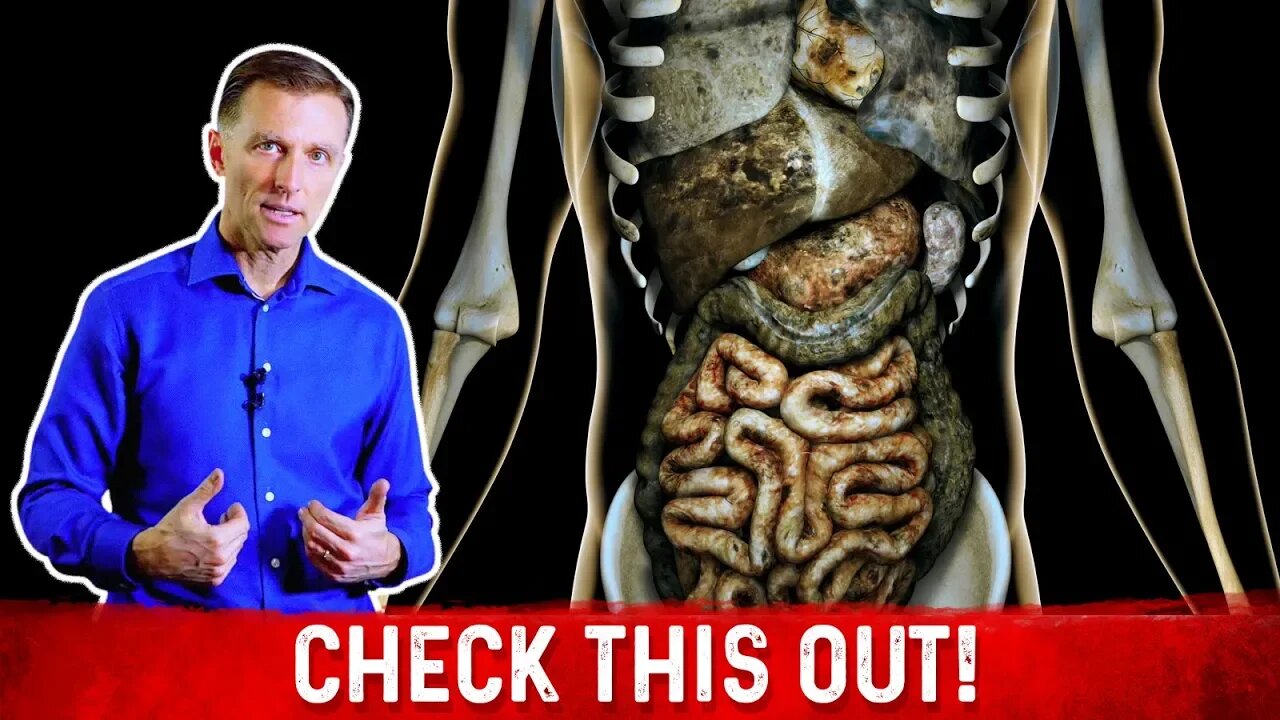Premium Only Content

How High Blood Glucose Levels Destroys These 4 Organs – Dr.Berg
High blood sugar can destroy your organs.
Timestamps:
0:00 How high blood sugar can destroy your organs (and what to do about it)
1:15 These are the four main organs at risk
8:45 The same health problems occur with high insulin as with high sugar
High blood sugar can destroy your organs. I explain how.
It’s called glucotoxicity. Glucotoxicity causes a massive oxidation effect, which is like rusting inside your body. It can happen in your arteries, brain, or nerves. Your body starts to heal it with proteins, calcium, and cholesterol that form plaques. That’s the body’s equivalent of a bandaid.
(By the way, diabetics that consume antioxidants from real food can lower the effects of glucotoxicity.)
Then you have glycation, caused when glucose and protein are combined then heated, such as with barbequed ribs that you then eat. This can cause some proteins in your body to become unusable and cause damage anywhere within your body.
These are the four main sets of organs at risk from high blood sugar:
●Kidney: sugar destroys kidneys, and you can end up on dialysis.
●Eyes: sugar damages the blood vessels at the back of your eyes that feed the retina, which is an extension of your brain. It also affects the pressure, causing glaucoma, and the lens, causing cataracts.
●Vascular: sugar causes your blood vessels to get stiff and develop oxidation, resulting in plaques, clots, and potentially a stroke
●Nerves/brain: sugar affects the blood vessels that feed your nerves, resulting in peripheral neuropathy. The remedy for this is vitamin B1 (benfotiamine). Vitamin B1 is an antioxidant. The vascular system that goes to the brain gets damaged, leading to what’s called diabetes type 3. Then there goes your memory and your ability to learn.
You don’t just wake up one day and suddenly have diabetes. You have prediabetes before that. Your fasting blood sugar is usually between 100-125. A level of 126 or greater on two different tests results in a diagnosis of diabetes. Then you take medication, which basically crams it from your blood into other places in your body. The sugar doesn’t magically go away.
Before prediabetes you have high insulin (hyperinsulinemia). Almost no one gets their fasting insulin tested, which is a mistake. Check the link below for more information.
A high carbohydrate diet triggers high insulin, and you’ll have the same health problems with high insulin as with high blood sugar.The medical profession doesn’t want to acknowledge the link between high carb diets and high insulin.
Go on keto and intermittent fasting. Lower your high blood sugar as well as your insulin.
Talk to a Product Advisor to find the best product for you!
Call 1-540-299-1556 with your questions about Dr. Berg's products. Product Advisors are available Monday through Friday 8am-6pm and Saturday 9am-5pm EST.
* At this time, we no longer offer Keto Consulting and our Product Advisors will only be advising on which product is best for you and advise on how to take them.
Dr. Eric Berg DC Bio:
Dr. Berg, age 56, is a chiropractor who specializes in Healthy Ketosis & Intermittent Fasting. He is the author of the best-selling book The Healthy Keto Plan, and is the Director of Dr. Berg Nutritionals. He no longer practices, but focuses on health education through social media.
Follow Me On Social Media:
Facebook: https://bit.ly/FB-DrBerg
Instagram: https://bit.ly/IG-DrBerg
Anchor: https://bit.ly/Anchor-DrBerg
TikTok: https://bit.ly/TikTok-DrBerg
Send a Message to his team: https://m.me/DrEricBerg
ABOUT DR. BERG: https://www.drberg.com/dr-eric-berg/bio
Disclaimer:
Dr. Eric Berg received his Doctor of Chiropractic degree from Palmer College of Chiropractic in 1988. His use of “doctor” or “Dr.” in relation to himself solely refers to that degree. Dr. Berg is a licensed chiropractor in Virginia, California, and Louisiana, but he no longer practices chiropractic in any state and does not see patients so he can focus on educating people as a full time activity, yet he maintains an active license. This video is for general informational purposes only. It should not be used to self-diagnose and it is not a substitute for a medical exam, cure, treatment, diagnosis, and prescription or recommendation. It does not create a doctor-patient relationship between Dr. Berg and you. You should not make any change in your health regimen or diet before first consulting a physician and obtaining a medical exam, diagnosis, and recommendation. Always seek the advice of a physician or other qualified health provider with any questions you may have regarding a medical condition.
Thanks for watching!
-
 7:36
7:36
Dr. Eric Berg
5 days agoWhy Can't I Talk About This?
4.79K42 -
 LIVE
LIVE
Glenn Greenwald
3 hours agoRFK Jr. Hearing Reveals DC Pro-Pharma Consensus; Trump's Executive Order to Deport Student Protesters Criticizing Israel; Untangling DC Think Tank Funding & Influence | SYSTEM UPDATE #399
4,967 watching -
 LIVE
LIVE
The Jimmy Dore Show
2 hours agoLiz Warren DEFENDS Big Pharma At RFK Hearing! Trump Dismisses Concerns Over NJ Drones!
13,235 watching -
 LIVE
LIVE
Space Ice
4 hours agoSpace Ice & Redeye: Van Damme's The Quest: Pirates, Clowns, James Bond & Bloodsport
224 watching -
 LIVE
LIVE
The StoneZONE with Roger Stone
1 hour agoJ6 Martyr Enrique Tarrio Describes Inhumane Prison Conditions Ordered by Biden | The StoneZONE
523 watching -
 LIVE
LIVE
Tundra Tactical
1 hour agoAffordable Medical Gear From ACETAC SHOT Show 2025
48 watching -
 1:46:16
1:46:16
Redacted News
4 hours agoRFK CONFIRMATION: Kennedy goes to WAR with Big Pharma Democrats in Fiery Hearing | Redacted Live
106K239 -
 57:31
57:31
Candace Show Podcast
4 hours agoBREAKING! Taylor Swift Turns Against Blake Lively & Ryan Reynolds | Candace Ep 141
126K158 -
 1:04:59
1:04:59
Sarah Westall
1 hour agoRFK Jr Report, Constitution Suspended, War Time Procedures in Place, WHO Exit, DOD w/ Sasha Latypova
4.93K2 -
 1:56:37
1:56:37
Melonie Mac
5 hours agoGo Boom Live Ep 35!
20.2K9